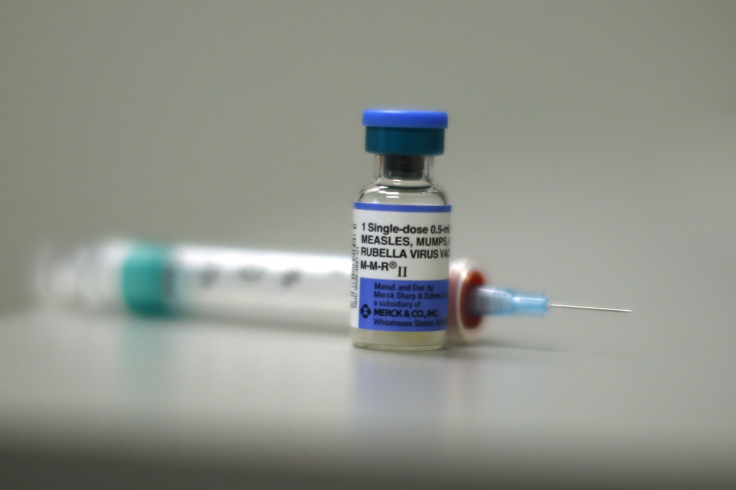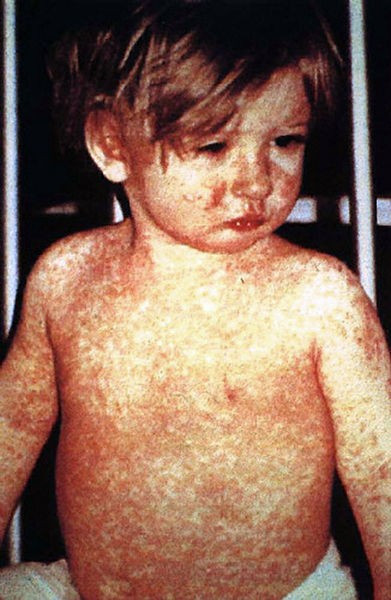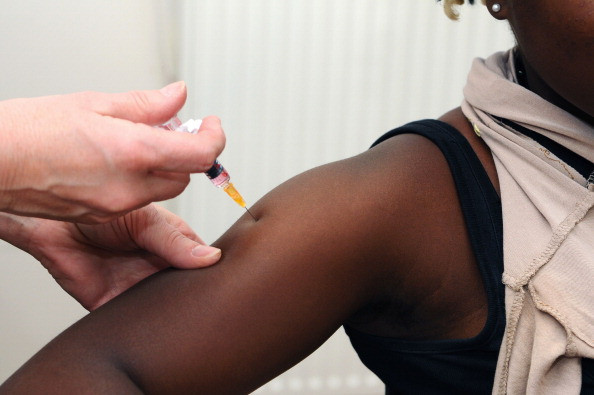Alarming measles outbreak in Italy blamed on anti-vaccination populist movement
There were more cases of measles in the first three months in 2017 than in the whole of 2016.

An alarming rise in measles cases in Italy has been blamed on an anti-vaccination movement in the country supported by the populist Five Star Movement (M5S) party.
In the first three months of 2017, more than a thousand cases of measles were recorded in the country, exceeding the total number of cases recorded in 2016.
In February alone there were 427 recorded cases, an increase of 402% compared with the previous year. The outbreak is primarily concentrated in the wealthier regions of Piedmont, Lombardy, Tuscany and Lazio, in northern and central Italy. The regional differences are due to the country's decentralised public healthcare system, which allows regional authorities to legislate around health issues as they see fit.
A bulletin from the Ministry of Health dated 17 March noted that the increase in cases has to do with "an increased number of parents who reject vaccination, notwithstanding the solid scientific evidence and the regional measures that aim to extend the coverage". As a result, both children and adults have suffered from the outbreak. According to the ministry data, more than half of those infected were adults aged between 15 and 39. Newborn babies were also affected by the disease before they even have the option of being vaccinated.
The last major measles outbreak in Italy was in 2002 when 60,000 people were infected and six died. The Italian government introduced an immunisation programme in 2005 to eliminate measles, but vaccination rates in Italy have been declining steadily since the anti-vaccination movement gathered momentum in the past five years. In 2011, the rates of vaccinations nationwide were 90%, still short of the World Health Organisation's recommended 95% rate to defeat the disease. Yet, in 2016, the vaccination rate had fallen further away from the target at 85%.
A doctor in the region of Apulia, one of the areas least hit by the outbreak as it has traditionally high vaccination rates of around 90%, said that parents sceptical about the vaccinations tend to change their position when presented with the possible consequences of their actions. "I ask them to sign a form that states that the parents are aware of the health risks that they may face as a consequence of rejecting the vaccinations, so that they take all responsibility for it," said Dr Piero Fanelli, an Italian paediatrician "When people have to sign, they suddenly see sense".

Members of the movement oppose vaccinations on various grounds, including distrust towards the pharmaceutical sector in favour of homeopathic solutions and the baseless fear of child developing autism if injected with the measles, mumps and rubella (MMR) jab.
Mother Elettra de Marches told The Guardian that she had decided against vaccinating her 16-year-old twins, who both got measles. "It's a manageable disease," she said. "There is no need for an injection, it's just for commercial purposes."
Physiotherapist Michele Marchesani chose not to have his daughter vaccinated after speaking to the parents of an autistic child who believed their son's condition was caused by the MMR jab.
"They campaigned and tried to take it to court, but didn't get anywhere with it ... I would trust the injection more if, say, a friend convinced me it was the right thing to do, but not when it comes from a politician."
Anti-establishment M5S party founder and comedian Beppe Grillo popularised the idea of the dangers of vaccination in 2007 in one of his shows. Throughout the year, Grillo kept writing about vaccinations' dangers on his blog, which is the party's official publication. When the M5S MPs entered the Italian parliament, one of their draft legislations concerned rejection of vaccinations for public service employees.
The M5S has carried out its anti-vaccination campaign in Europe too, demanding less vaccinations. "Mass vaccination is a gift to multinational pharma and it is the furthest thing there is to an appropriate approach," the M5S European group said in a statement dated October 2015.
The anti-vaccination claims were boosted in Italy by a series of court cases in which the judges sided with families suing the State, claiming their children contracted autism after the MMR vaccination. The Italian State won the appeal in all three cases, after the courts were convinced by a solid body of scientific research dismissing links between autism and vaccinations.
The secretary general of the National Federation of the Order of Doctors (FNOMCEO) Luigi Conte told an Italian news agency in October 2016 that cases of serious complications deriving from vaccinations are extremely rare. "Complications from vaccinations are recorded in 1 case every 1,000,000, while serious complications deriving from measles or meningitis are 1 every 10,000 cases".
The correlation between the MMR vaccination and autism was first drawn by British medical researcher Andrew Wakefield in scientific journal The Lancet in 1998. The paper sparked a major health scare with confidence in the MMR jab falling from 59% to 41%. An investigation by the Sunday Times revealed that Wakefield had manipulated evidence and was being paid by lawyers who were trying to prove that the vaccination was unsafe.
"The defeat of polio, diphtheria and hepatitis B cannot be denied, because the greatest medical discoveries were antibiotics and vaccinations, let's not forget that," said Dr Fanelli "These [anti-vaccination] rumours have to be suppressed."

There is greater consensus in the medical community that exposure to pesticides and chemicals is harmful to young children's brains. A Columbia University study in 2012 found that children exposed to high levels of the pesticide chlorpyrifos showed persistent changes in their brains throughout childhood. Magnetic imaging revealed that the areas of the brain associated with attention, decision-making, language and impulse control were changed structurally due to the exposure.
There was outrage in the US this week after the Environmental Protection Agency (EPA) denied a petition to ban the pesticide, despite known links to brain damage in young children.
"The notion that we should continue to use a pesticide linked to autism because it's needed to feed the world is an outrageous, ridiculous statement," Scott Faber, the Vice-President of the Environmental Working Group, told CNN.
Italian Minister of Health Beatrice Lorenzin said her department was taking urgent measures to "quickly regain vaccination rates that have lowered dangerously in recent years". In January, representatives of both national and regional governments reached an understanding over a national law to make vaccinations compulsory for a child to attend kindergarten schools, but it remains unclear how fast will the law be passed through the famously slow Italian legislative system.
Italy is not alone in this issue. Measles is spreading across Europe due to a drop in immunisation coverage in several countries, such as France, Germany, Poland, Romania and Ukraine. The outbreaks in Italy and Romania are much more extreme than in the other countries, with Romania recording over 3,400 cases and 17 deaths since January 2016.
Dr Zsuzsanna Jakab, the World Health Organisation's regional Europe director, said all endemic countries "should take urgent measures to stop transmission of measles within their borders".
"Together we must make sure that the hard-earned progress made towards regional elimination is not lost," she said.
© Copyright IBTimes 2025. All rights reserved.






















